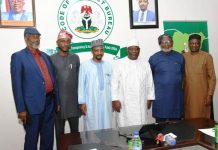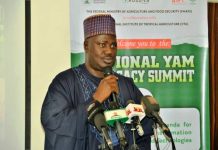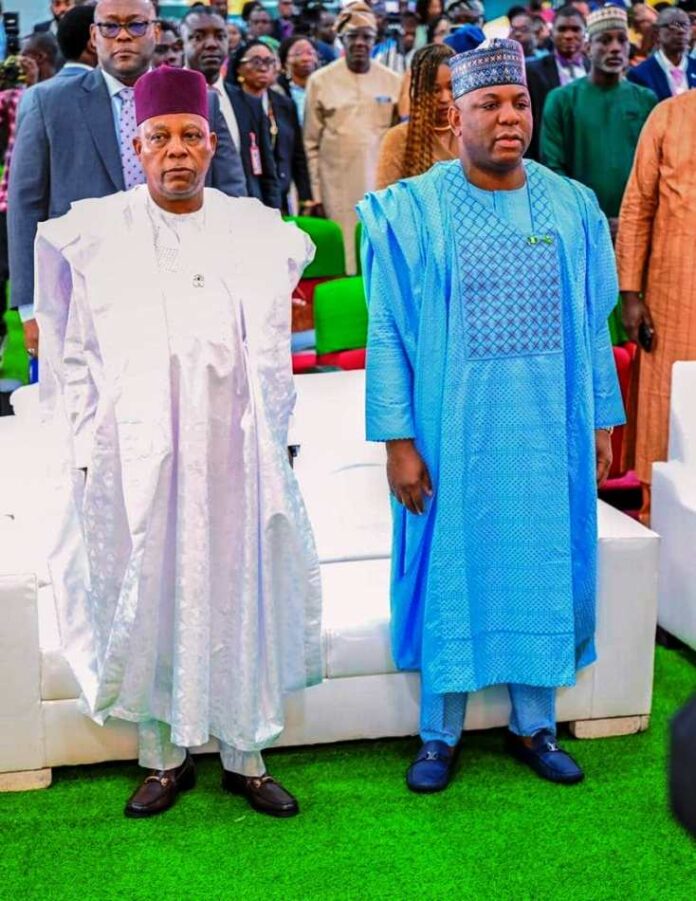
…………..As the Ministry of Steel Development holds the Maiden Edition of the National Steel Summit in Abuja.
President Bola Ahmed Tinubu, GCFR, has declared the Inaugural National Steel Summit open, marking a significant milestone in Nigeria’s quest to revitalize its steel industry. Represented by the Vice President, Kashim Shettima, GCON, the President emphasized the critical role of the steel sector in driving industrial growth, economic diversification, and national security.
He stated that the Renewed Hope Agenda of this administration has laid a robust foundation for the revitalisation of the Nigerian Steel industry through strategic policy decisions, substantial investment, international collaborations and intensified efforts to foster private sector participation in driving economic growth. He disclosed that more tangible outcomes are anticipated in the coming years. Adding that these concerted efforts signify a renewed commitment to harnessing the steel sector as a catalyst for Nigeria industrial and economic transformation.
According to him, the bid to rebuild the Nigerian Steel Sector is not just an economic agenda, but a National mission. He noted that the steel industry will not be revitalised by the government alone, as the government needs the boldness of private investors, the innovation of our universities, the skill of our workers and the patronage of our people. We must abandon short-term thinking and embrace long term nation building. There will be impediments but with systematic implementation disciplined governance, and unity of purpose, Nigeria will overcome the legacy of failure and fulfil the promise of industry greatness, he stated.
Speaking further, Senator Shettima stated that Nigeria target to produce 10 million tonnes of liquid steel annually by 2030, creating over 500,000 direct and indirect jobs. “The Federal Government is prioritizing the completion and commissioning of the Ajaokuta Steel Company and National Iron Ore Mining Company, with a comprehensive technical and financial audit underway. The government has attracted a $400 million investment in a new steel plant in Ogun State and $500 million worth of mini-LNG plants in Kogi State, the Ministry of Steel Development is partnering with the Ministry of Defence and Defence Industries Corporation of Nigeria to produce military hardware locally, efforts are underway to also revive legacy steel projects, including the resuscitation of Delta Steel Company (now Premium Steel and Mines Limited)”
The Vice President said the objective is for the nation to achieve self-sufficiency in steel production, conserve foreign exchange, and build the industrial base that will drive Nigeria’s economy for generations to come, to create a competitive steel industry in Nigeria, with a focus on logistics infrastructure, affordable energy access, and regulatory frameworks, identify opportunities for investment in mining and local sourcing of steel raw materials. “We will rethink, retool, and revitalize Nigeria’s steel sector to secure our industrial future.
Speaking earlier, the Honourable Minister of Steel Development, Prince Shuaibu Abubakar Audu emphasized the importance of the steel sector in Nigeria’s economic development, highlighting its potential to drive industrialization, manufacturing, and natural resource utilization. He noted that the sector’s growth is crucial to achieving President Bola Ahmed Tinubu’s Renewed Hope Agenda, which aims to grow Nigeria’s GDP to $1 trillion by 2030. The Minister stressed that the steel industry is a backbone of industrialized value chains, providing essential materials for construction, automobiles, electronics, shipbuilding, and military equipment.
Prince Shuaibu stated that the Nigerian steel industry has a rich history, dating back to 1958 when the Federal Government conceptualized establishing an iron and steel industry and despite abundant steel-making raw materials, the industry has struggled over the past decades due to the absence of operational integrated steel plants. He however stated that the present administration is putting modalities in place to change that narrative.
The Minister outlined key enablers for the Nigerian steel industry, including abundant steel raw materials, import duty-free mining/steel plant equipment, and ease of doing business in Nigeria. He emphasized the importance of local steel production in driving massive local steel raw materials consumption, generating employment opportunities, and promoting technology transfer. He added also, that the Ministry is working to generate resource data on iron ore to drive investments in the sector and collaborating with critical stakeholders across the Federal Government.
“”To promote the steel industry, the Federal Government has introduced fiscal incentives, such as capital allowances of up to 95% of qualifying capital expenditure, exemption from customs and import duties for plant, machinery, and equipment, and tax holidays”. The Minister also highlighted the significance of infrastructure development, including transportation, power supply, and port facilities, in making the industry more competitive.
The Honourable Minister concluded by emphasizing the importance of the Summit in deepening collaborative partnerships, knowledge exchange, and inclusive dialogue to forge a common direction for a sustainable Nigerian steel industry. He charged stakeholders to take the event seriously, noting that they are at the threshold of history, both collectively and individually as the summit aims to position Nigeria as a regional hub in Africa, leveraging the various obvious enablers in the country’s advantage.
Delivering his speech at the Summit, The Honourable Minister of Transportation, Senator Said Ahmed Alkali, urged all the distinguished participants to maximize the potentials of the Summit which will, among others, provide the enabling atmosphere to discuss the strategies of operationalizing the 10-year National Steel Roadmap development to guide sustainable growth with a target if 10 million tons Crude Steel Production per year.
In his remarks, Distinguished Senator Patrick Chiwuba Ndubueze, Chairman Senate Committee on Steel in the National Assembly assured the Ministry, Stakeholders and other participants that the Senate will give all the necessary legislative backing to ensure speedy development of the Nigerian Steel sector to meet up to its objective of the industrialization of the Nation.
The Honourable Minister of Solid Minerals Development, Dr. Dele Alake and the Minister of Industry, Trade and Investment Dr. Jumoke Oduwole in their separate remarks at the summit assured of their support and partnership in the effort to revitalize the steel sector under the Renewed Hope Agenda of the Government of President Bola Ahmed Tinubu, GCFR, which they are all committed to.
Earlier in his welcome address, The Permanent Secretary of the Ministry of Steel Development, Dr. Chris Osa Isokpunwu, also emphasized the importance of collaborative action in rebuilding and consolidating Nigeria’s steel industry as he highlighted the critical role of the steel industry in driving industrial growth, economic diversification, and national development.
Dr. Chris stated that the Summit, themed “Rebuilding and Consolidating Nigeria’s Steel Industry: Collaborative Action for Sustainable Growth and Global Competitiveness,” aims to bring together policymakers, industry leaders, investors, researchers, and development partners to drive collaborative action for sustainable growth and global competitiveness in Nigeria’s steel industry, adding that the Ministry is committed to creating an enabling environment for investment, reviving moribund steel plants, strengthening the value chain, and promoting sustainable mining and processing practices.
He said the outcome of the Summit will provide valuable inputs for the development of a National Strategic Plan of Action for the Steel and Metallurgical Sector, which will guide sector-wide interventions, prioritize infrastructure development, attract sustainable investments, promote research and innovation, ensure environmental sustainability, and position Nigeria as a competitive player in the global steel market.
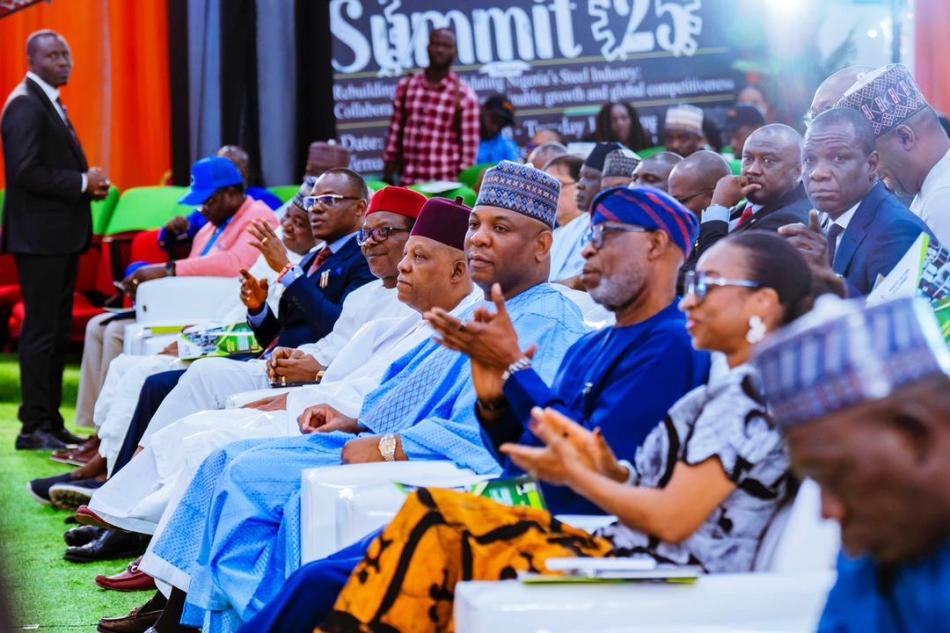
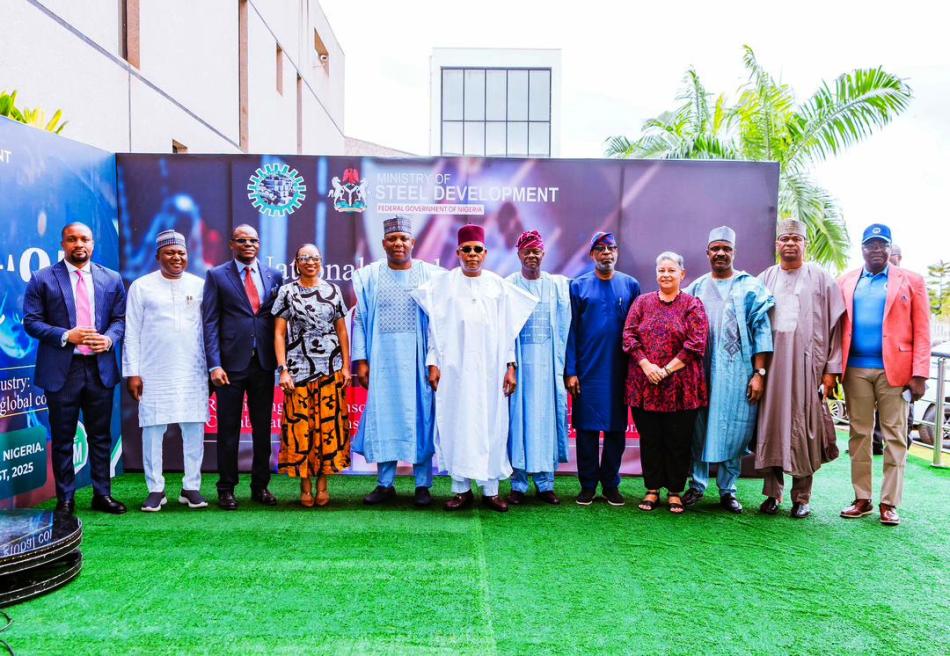
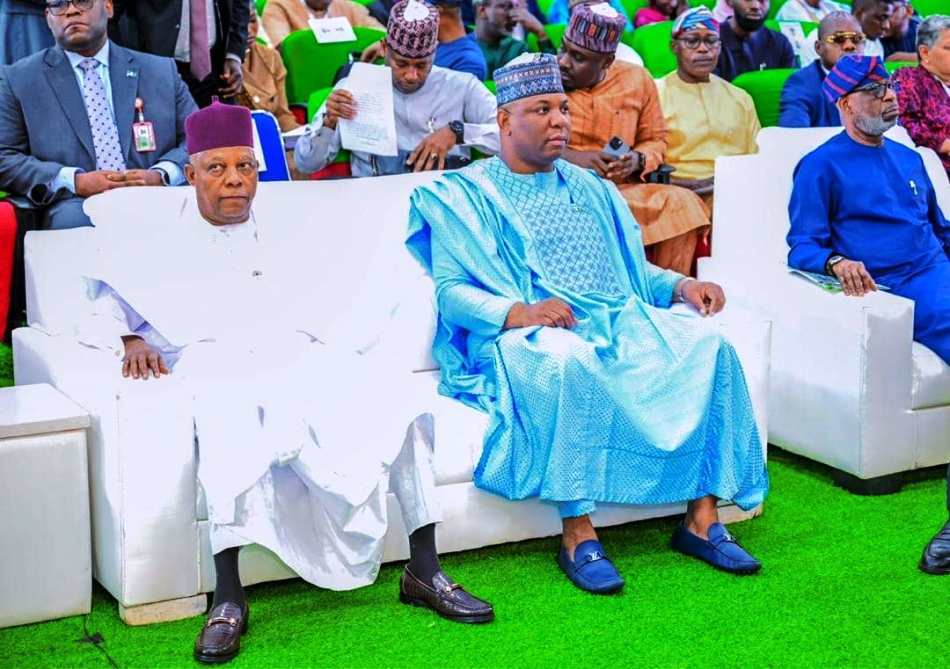
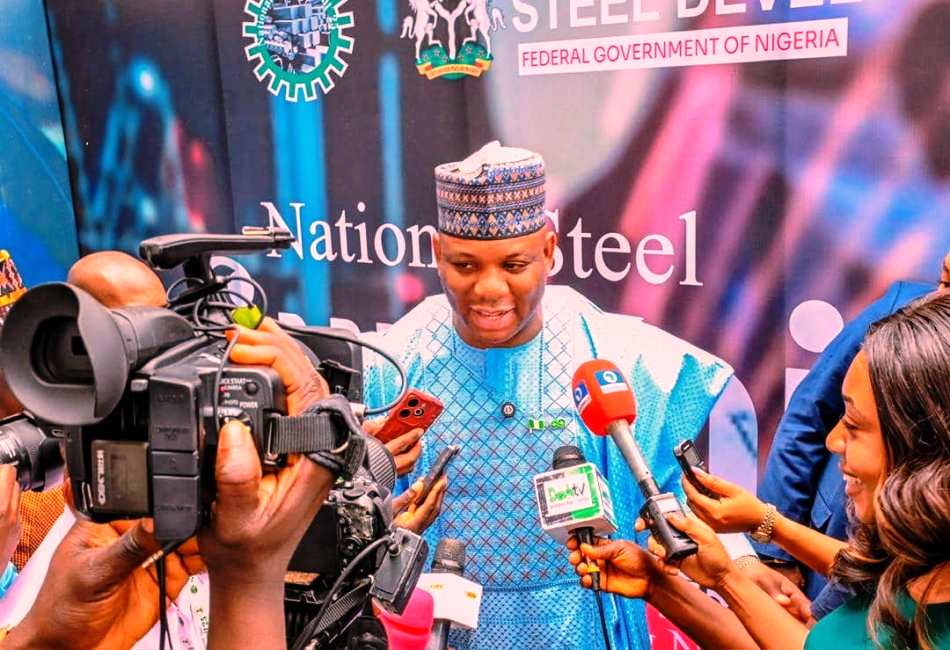
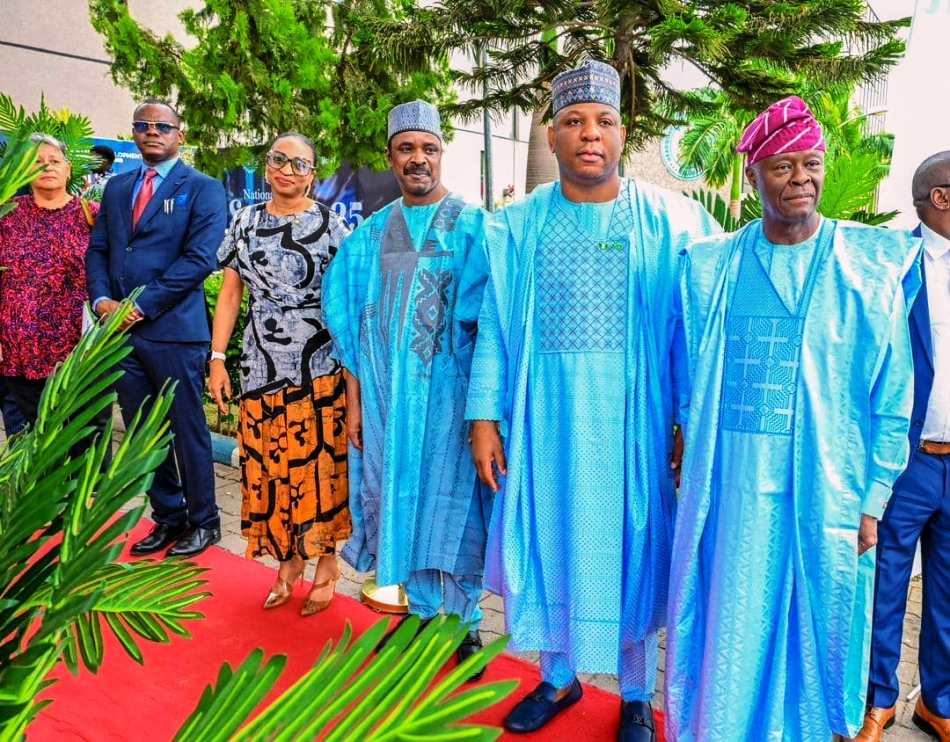
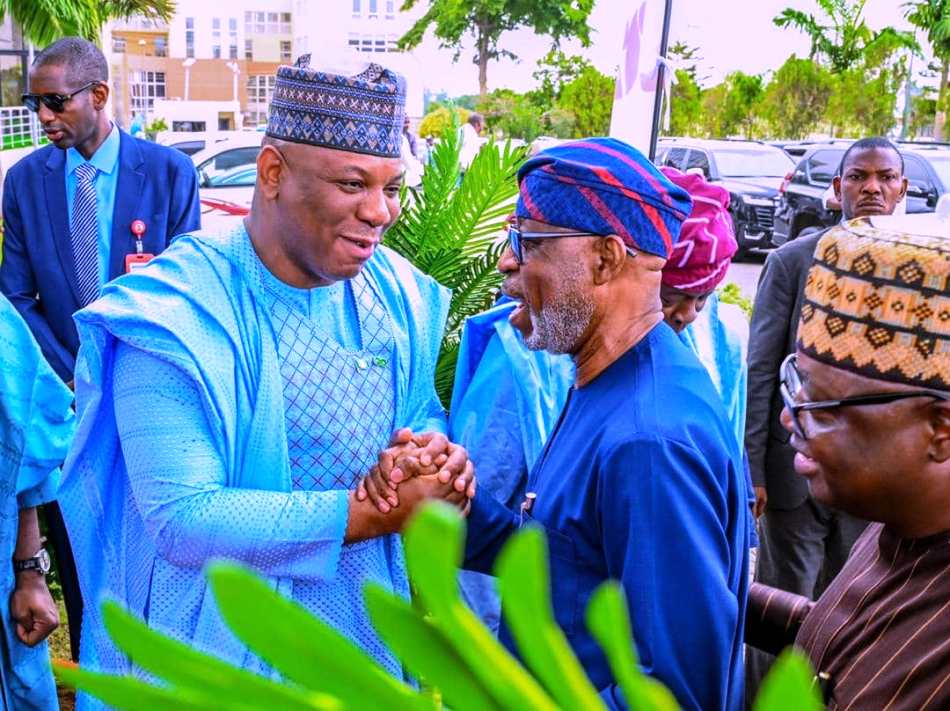
Signed
Ijomah E. Opia, fnipr.
Principal Information Officer
For; Head, Information and PR
14- 08 – 2025




